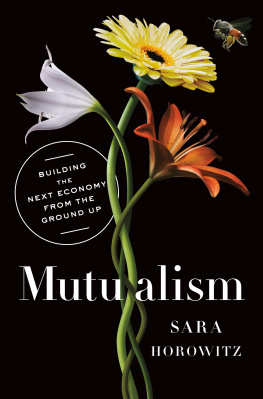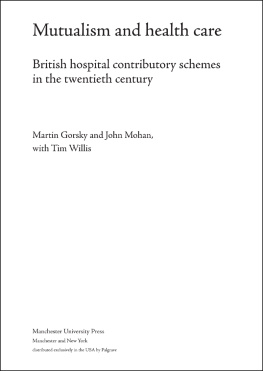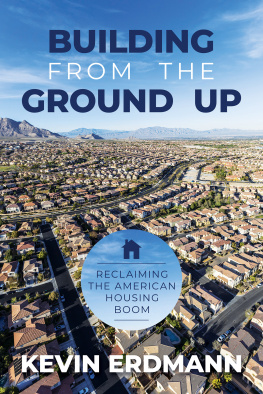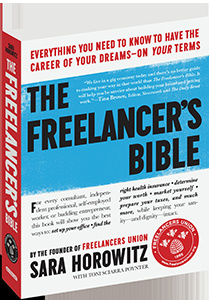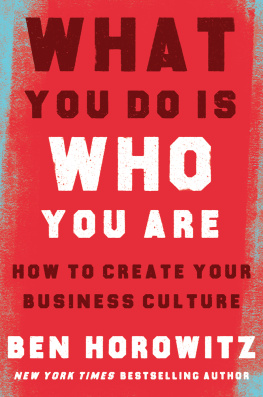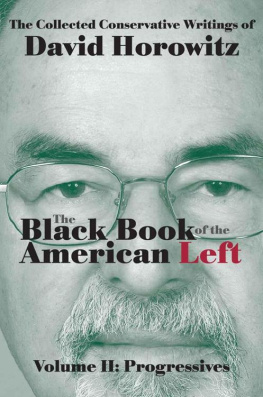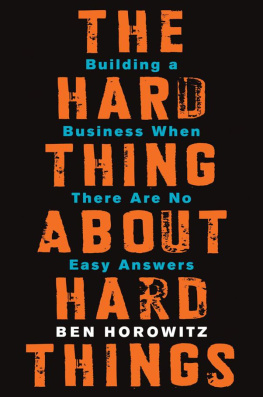Sara Horowitz - Mutualism: Building the Next Economy from the Ground Up
Here you can read online Sara Horowitz - Mutualism: Building the Next Economy from the Ground Up full text of the book (entire story) in english for free. Download pdf and epub, get meaning, cover and reviews about this ebook. year: 2021, publisher: Random House Publishing Group, genre: Politics. Description of the work, (preface) as well as reviews are available. Best literature library LitArk.com created for fans of good reading and offers a wide selection of genres:
Romance novel
Science fiction
Adventure
Detective
Science
History
Home and family
Prose
Art
Politics
Computer
Non-fiction
Religion
Business
Children
Humor
Choose a favorite category and find really read worthwhile books. Enjoy immersion in the world of imagination, feel the emotions of the characters or learn something new for yourself, make an fascinating discovery.
- Book:Mutualism: Building the Next Economy from the Ground Up
- Author:
- Publisher:Random House Publishing Group
- Genre:
- Year:2021
- Rating:3 / 5
- Favourites:Add to favourites
- Your mark:
- 60
- 1
- 2
- 3
- 4
- 5
Mutualism: Building the Next Economy from the Ground Up: summary, description and annotation
We offer to read an annotation, description, summary or preface (depends on what the author of the book "Mutualism: Building the Next Economy from the Ground Up" wrote himself). If you haven't found the necessary information about the book — write in the comments, we will try to find it.
Sara Horowitz: author's other books
Who wrote Mutualism: Building the Next Economy from the Ground Up? Find out the surname, the name of the author of the book and a list of all author's works by series.
Mutualism: Building the Next Economy from the Ground Up — read online for free the complete book (whole text) full work
Below is the text of the book, divided by pages. System saving the place of the last page read, allows you to conveniently read the book "Mutualism: Building the Next Economy from the Ground Up" online for free, without having to search again every time where you left off. Put a bookmark, and you can go to the page where you finished reading at any time.
Font size:
Interval:
Bookmark:
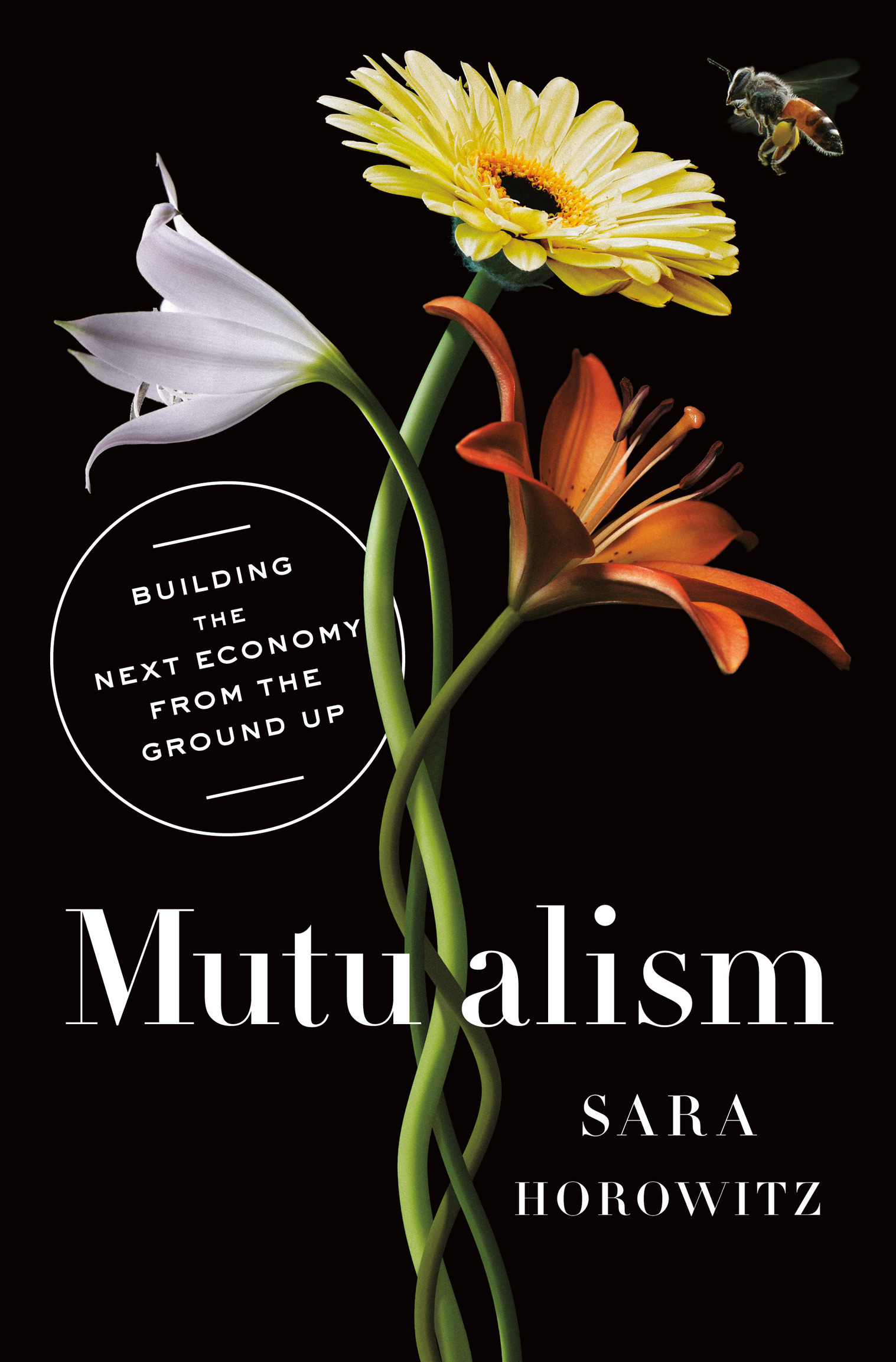
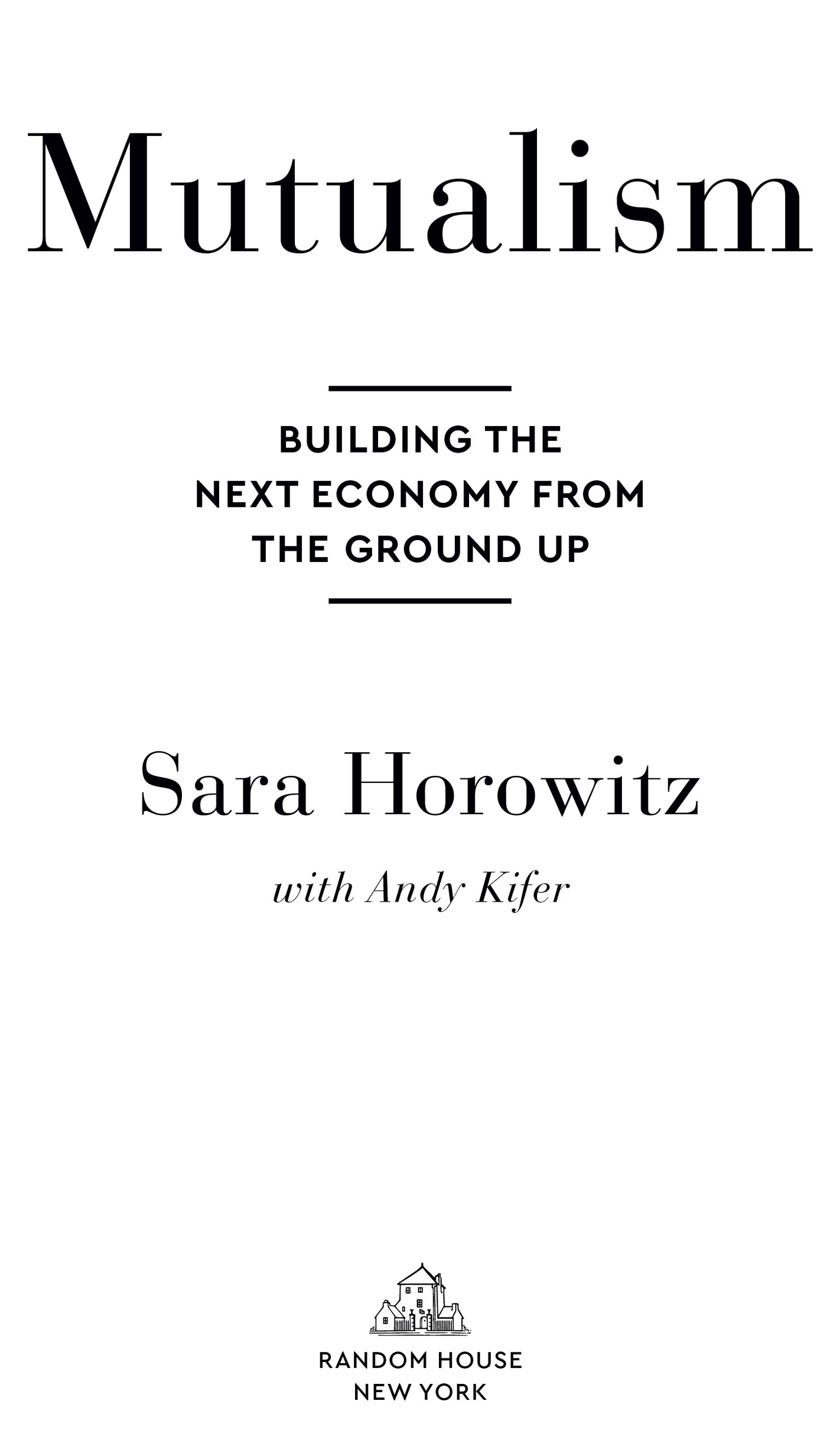
Copyright 2021 by Sara Horowitz
All rights reserved.
Published in the United States by Random House, an imprint and division of Penguin Random House LLC, New York.
Random House and the House colophon are registered trademarks of Penguin Random House LLC.
Library of Congress Cataloging-in-Publication Data
Names: Horowitz, Sara, author. Title: Mutualism: building the next economy from the ground up / by Sara Horowitz.
Description: New York: Random House, 2020 | Includes bibliographical references and index.
Identifiers: LCCN 2020037289 (print) | LCCN 2020037290 (ebook) | ISBN 9780593133521 (hardcover) | ISBN 9780593133538 (ebook)
Subjects: LCSH: MutualismUnited States. | CooperationUnited States. | Employee fringe benefitsUnited States.
Classification: LCC HD3444 .H67 2020 (print) | LCC HD3444 (ebook) | DDC 334dc23
LC record available at https://lccn.loc.gov/2020037289
Ebook ISBN9780593133538
randomhousebooks.com
Illustrations by iStock/vreemous
Cover design: Ben Wiseman
Cover images: Getty Images/ Scott Mansfield (orange lily), Getty Images/PhotoAlto/ Michele Constantini (white lily), Getty Images/ Adegsm (honey bee), Getty Images/EyeEm/ Andrew Airey (gerbera daisy)
ep_prh_5.6.1_c0_r0
If you want to be happy, be.
Leo Tolstoy
Mutualism is an old idea: We can look to one another to solve the most intractable problems we encounter in our lives. The instinct to help our neighbors in times of crisis is so natural to us that when we are given the tools to do soto help our peers, and to ask for help in returnwe know exactly what to do.
We need mutualism now more than ever. When the COVID-19 pandemic hit America in March 2020, we all felt an absence where our federal and local governments should have been. We were left guessing: Could we travel outside of our cities? Should we take our children out of school? Where could we get masks? We were left stranded, abandoned to our homes, afraid of running out of food. The government was like the tree we didnt know was rotten until the storm knocked it over. And for the first time, many Americans realized they had no safety net. They realized they had nowhere to turn but to each other.
So into the vacuum left by government, from New York City to Colorado to Seattle and everywhere in between, neighbors began helping neighbors, forming mutual aid societies to meet their most urgent needs: access to food, medication, masks. An ad hoc infrastructure, powered by technologies usually reserved for corporate productivity, like Slack and Airtable, enabled donations of time, money, and even blood and plasma. Communities helped each other assemble from scratch a new, ad hoc safety net, and the process of rebuilding began. This was the mutualist instinct at its most basic and most pure.
This mutualist instinct is as old as humanity, and just as durable. Its how the earliest Americans met their most essential needs, how the labor movement transformed the American economy by building the first safety net for workers in the 1910s and 20s, how the New Deal enshrined and scaled that safety net in the middle of the American Century, and how a remarkable coalition of mutualist organizations galvanized the civil rights movement by building power over the course of decades. Throughout the years, mutualist institutions have been called many things and taken many formsreligious groups, communes, mutual aid societies, cooperatives, unions, mutuals, kibbutzim, tontines, fraternal societies, womens organizations, trade associationsbut they all spring from a common impulse: If neither government nor market forces are solving a problem that you and the people in your community share, why not solve it yourself?
Ive been collecting stories from our mutualist past for decades, and what Ive come to see is that the most profound social changes often begin simply, when groups of people come together to solve their own problems by building the institutions they need, usually out of nothing more than basic practicality. Mutualism is really just another word for a simple truth: citizens can join together to solve their own problems, even the most intractable ones. In an era when our government has abdicated responsibility altogether, we can no longer afford to wait. And we have no choice.
I started the nonprofit that became the Freelancers Union in 1995 because freelancers, excluded from the labor legislation of the New Deal, needed a safety net. Ineligible for basic government protections, even the most successful freelancers were shouldering unbearable amounts of risk. As the ads we ran in the New York City subway in the 2000s put it: Health Insurance vs. Paying the Rent: Welcome to Middle-Class Poverty. These freelancers had no safety net, so we built one. We were practicing mutualism, pure and simple. The Freelancers Insurance Company and brokerage we built wasnt just a successful insurance business (though with nearly $1 billion in revenue over the ten years we operated, it certainly was that); it was also a community. We listened to our members, and we built the things they asked for. We even built freelancers their own health clinic, right off Jay Street in downtown Brooklyn.
It wasnt the first time that workers have built their own safety net from scratch. I brought to the Freelancers Union a knowledge of a moment in time since lost to history, a time when the existence of this kind of mutualist safety netbuilt by workers, for workerswas simply the way things worked. My grandfather Israel Horowitz helped build the International Ladies Garment Workers Union (ILGWU), one of the most successful unions in history, from the ground up in the 1910s and 20s. This was before the New Deal, and unions like the ILGWU, whose members were on the front lines of the changing industrial economy, took their well-being into their own hands. They built for themselves insurance companies, banks, housing, and even collective summer vacation communities. Not only did their members prosper, but unions like the ILGWU also recycled the revenue from their businesses back into their communities so that their workers could experience nature, art, literature, and educationin short, so that workers could become their fullest selves.
Freelancers have been on the front lines of the disintegrating safety net for decades, but today the collapse of Americas safety net affects us all. When record numbers of Americans lost their jobsand as a result, their employer-sponsored healthcareduring the COVID-19 pandemic, the American workforce became exposed to risk to an unprecedented degree. But the collapse of the safety net was no accident: it was the result of neglect on the left and sabotage on the right, and rebuilding it isnt going to be the work of any one party. Instead, the new safety net will have to come from us. After all, mutualist cooperation is not only how Americans have built the safety net in the past; its also how Americans have galvanized the biggest and most successful social movements in our history.
But major social change doesnt happen overnight. It begins locally, with mutualist organizations that solve specific problems for a particular community. As these local organizations become successful, typically because they find an economic model that can sustain themdues, sales, or some other economic activitythey serve as anchors for sophisticated and sturdy mutualist ecosystems that can solve increasingly intractable problems. Over the course of decades, these mutualist ecosystems build up powerin politics and in marketsto form even broader coalitions, by building bridges with other mutualist ecosystems. Finally, with a shared goal these broad coalitions of mutualist leaders leverage their vast networks to transform society from the ground up. As mutualist organizations evolve into ecosystems and eventually into coalitions for transformation, mutualist leaders gain an ever-higher vantage point from which to see new opportunities for change. At its best, maturing mutualist activity moves through these three levels of sophistication. This is how America has remade itself again and again.
Font size:
Interval:
Bookmark:
Similar books «Mutualism: Building the Next Economy from the Ground Up»
Look at similar books to Mutualism: Building the Next Economy from the Ground Up. We have selected literature similar in name and meaning in the hope of providing readers with more options to find new, interesting, not yet read works.
Discussion, reviews of the book Mutualism: Building the Next Economy from the Ground Up and just readers' own opinions. Leave your comments, write what you think about the work, its meaning or the main characters. Specify what exactly you liked and what you didn't like, and why you think so.

